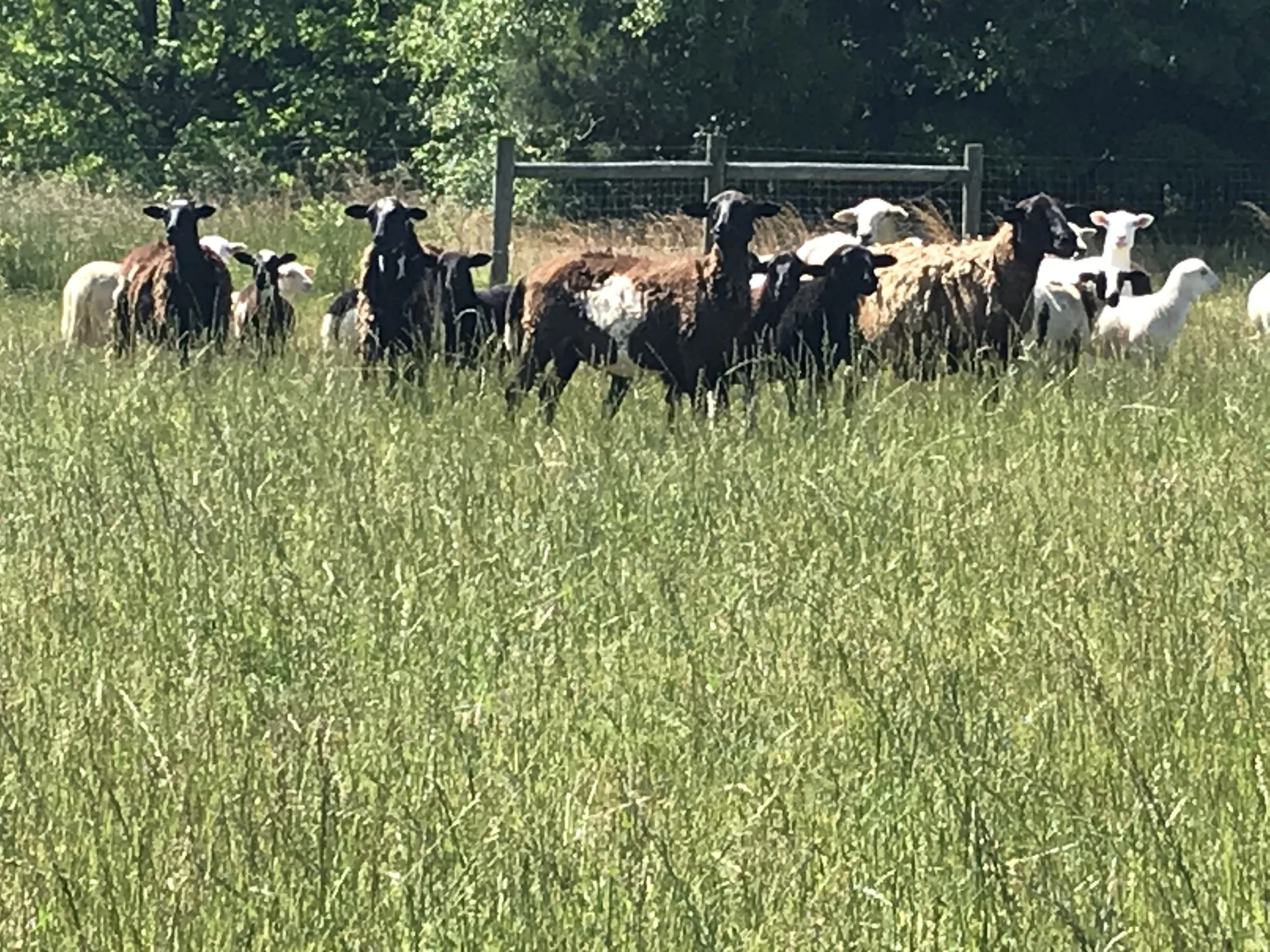My parents went back to the land in the late 1970s. Both my parents were raised on farms in Iowa and for them, modern agriculture was a primary cause of environmental damage. My dad, an ornithologist with a PhD in the newly formed field of wildlife ecology, worked for the US Fish and Wildlife service. His PhD research was on the disruptions to migration and reproduction for waterfowl when the ecology of prairie wetlands was disrupted by draining and tilling the land for monocrops. My mom was a nurse, and as you already know, came from a long line of farming women. They bought a farm in Northern Minnesota and set to work planting a garden, fruit trees and procuring livestock from some rather nefarious sources. When my dad left to work in Virginia, she took over the farm by herself.
My mother, 5 foot, 2 inches tall on a good day and 100 pounds soaking wet is made of steel, love and grit. With a herd of sheep and goats, a flock of chickens, rabbits, a 40-acre hay field and a big garden, she would have made her ancestors proud. Canning, pickling, milking, butchering, she kept my brother and I busy and all of us and our animals well fed and cared for year-round. Mostly by herself. After a few seasons of this, however, reality set in and she decided to nix the sheep who spent their lives in a back pasture full of thistle and tansy. They were a 4-H project for my brother, but as a teenager with a farm permit to drive, he wasn't that into 4-H anymore. Once we'd sheared the sheep to sell the wool, she sold the herd. I wasn't very old at the time, not old enough to know the difference between a ram's scrotum and an ewe's udder, to my family's great and enduring delight, anyway.
The goats were definitely smarter and friendlier than the sheep, so I didn't really miss them too much, but I slept under a woolen bat filled with their wool until a few years ago when my mother insisted I get some imitation down comforter. It's not the same. We also didn't eat the sheep meat, for reasons I don't really understand. Perhaps the ram was no different from the ewe in the reproductive department and we never had enough lambs to make it worth the effort. It was only when, inspired by my mother, I was pursuing a graduate degree at Penn State on women farmers and sustainability, that I encountered serious meat sheep farmers. Lamb—or mutton—as a prefer to call it given how it's not exactly accurate to call a nearly full-grown sheep a lamb, is considered something of a luxury food in the United States. We eat it for special occasions and the stuff in the grocery store is almost always from Australia or New Zealand, for reasons that boggle the mind.
Sheep can be raised virtually anywhere.
One woman farmer I interviewed for my project, got into farming with her late husband when the two of them bought a piece of mountain hillside in Central Pennsylvania. It was all they could afford at the time and since they didn't want a dairy farm, it suited their needs to go back to the land just fine. Until they started thinking about what they could actually raise on the steep hillside without destroying the land like their neighbors had done with cattle. There were a few possibilities, but only two they would generate income quickly and reliably: blueberries and sheep. They planted blueberries, which matured in a few years and they invited the public to pick their own berries, thus saving them the labor of harvest. Sheep, lightweight and easy to feed, grazed the hillside in pastures that rotated to preserve the ground and protect the forage. Urban markets were close enough to get a good price for the high-quality meat. For these farmers, the environment mattered more than the individual lives of a single sheep and their business supported dozens of other businesses, civil society and consumers, while they made the land better.
I meet a lot of people who tell me they don't eat lamb, because the word conjures up images of sweet eyed babies, but let me tell you, no farmer is dumb enough to harvest a 10-pound cutie. The "lamb" we eat is nearly full-grown because it doesn't make any economic sense to do it otherwise. My neighbor, Bill Perry, who supplies me with the mutton I eat, let me take a look at his herd for another project, and even I can't tell you which of those sheep was a "lamb" destined for my freezer.
He could, though. Because he cares for them daily, and their life and death matter to him, in a really good way. He too, rotates his pastures even though he isn't anywhere near making a negative impact with his small herd on a big pasture, but he tells me that it's better for the pasture and all the living things in the ground for the herd to be rotated every few weeks.
That's why I buy mutton from Bill and not Australia, because I want to continue to be a part of something bigger than me and bigger than a single animal's life. And it matters to me that the animal that he harvested for me was known personally by Bill, had a good life and a good death and that Bill's business supported other small businesses and farms around me. That's the kind of multi-species flourishing that I was raised with, that I want to continue to support and I want to encourage more people to support.

